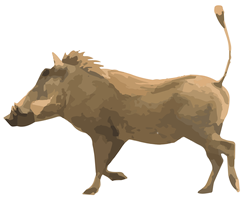Tanzania is a smart East African Nation which is located on the East Coast of Africa also a melting pot of different culture heritage each with its unique customs, traditions and historical significance. With over 120 ethic groups of attractive altitude from its diverse people and languages to its art, music and religious practice
Different Ethics Groups and Their Traditions :
Maasai; Are known for their different customers including elaborate clothing , strong bond to traditional practices traditional dances and age-old customs continue to fascinate visitors. Despite the influence of modernization, the Maasai have managed to preserve many aspects of their culture, making them one of the most recognized and respected groups in Africa.
Hadzabe; This is one of the world last remaining hunter gatherer tribes in Tanzania living in a remote areas of the central and north part of the country near the Rift Valley of which you can also find them in Serengeti national park, Ngorongoro national park and Tarangire national park. The Hadzabe roam as needed to find game , tuber and wild berries hunter gatherer societies understand that their survival depends on natural resources. The Hadzabe speaks a unique language known as Hadzane , which incorporates clicking and popping sounds as well as more familiar sounds .
Chagga; This are people who are also known as [wachaga] are one of the most famous ethic groups in Tanzania known for their agriculture capability , Complex social structure and rich cultural traditions the chagga people inhabit the fertile slope of Mount Kilimanjaro in north part of the country significant role in shaping the history and identity of Tanzania.
Language and Communication
In Tanzania the common most used language is Swahili or Kiswahili which is also the national language and also mostly spoken by nearly all Tanzanians. Swahili is a Bantu language with significant Arabic influence has shaped the coastal regions of Tanzania Swahili cities like Zanzibar and Dar es salaam showcase in rich architectural heritage with intricate stone work and wooden carvings adorning mosques, palace and homes Swahili foods , a fusions of flavors is delightful culinary experiences.
Music and Dance;
Music and dance are basic to Tanzania culture used for everything from social gatherings to religious ceremonies. With ethic groups having its own distinctive style like Bongo Flava, a popular music genre, blends traditional African rhythms with modern influence Taarab a slow romantic style is often accompanied by poetic lyrics Traditional dance such as ngoma, foot work and expensive gesture.
Art and Craft;
A visual feast Tanzania art and craft are deeply tied to the cultural identity of which create stunning work of art reflecting their cultural heritage and artistic skills for example the Makonde wood carvings, known for their intricate designs and symbolism, are highly sought after by collectors. Maasai beadwork, with its vibrant colors and intricate patterns, is another popular art form.

